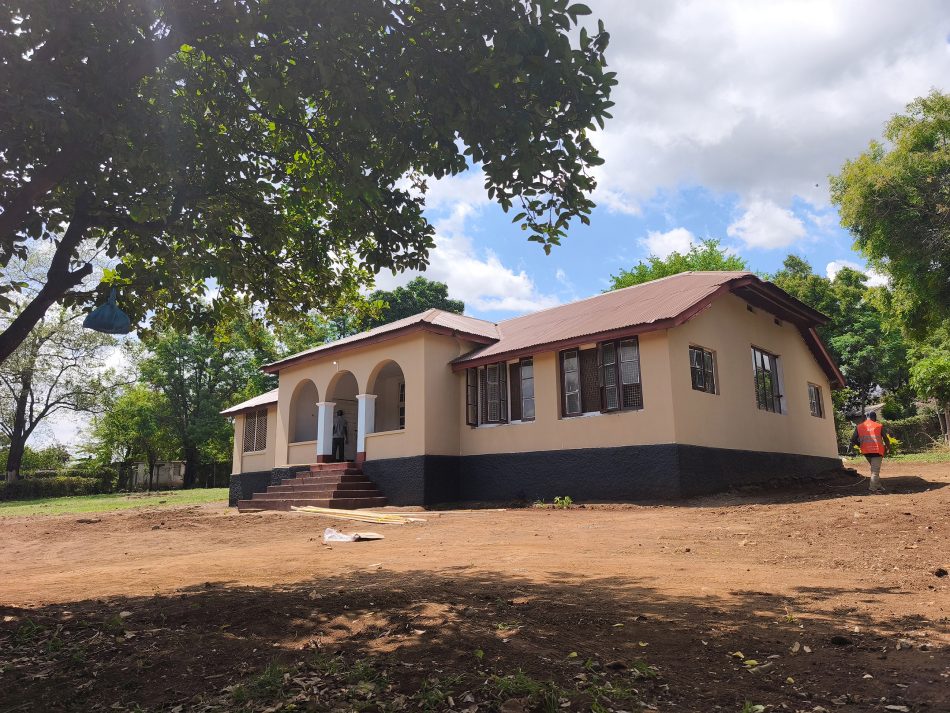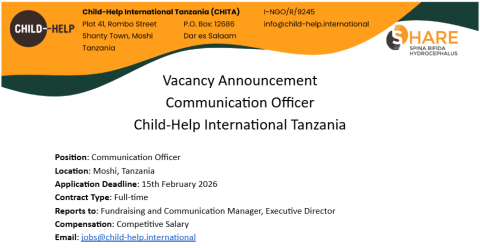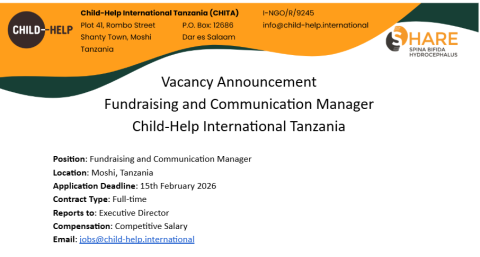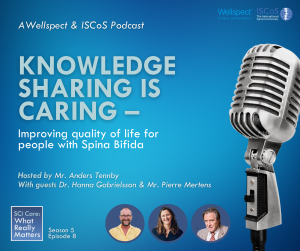
As a central hub, the Knowledge Centre connects and empowers national networks, facilitating resource-sharing and training. Both physical and virtual centres serve individuals and professionals at all levels, ensuring that knowledge is accessible and actionable.

Child-Help International Tanzania has two open positions in Moshi:
• Communication Officer
• Fundraising & Communication Manager
Join our team and help amplify impact, strengthen partnerships, and support children with spina bifida and hydrocephalus through ethical, meaningful communication.
Read more
The Communications Officer is responsible for managing internal and external communication for Child-Help International Tanzania. This position ensures that the organisation’s mission, impact, and values are communicated authentically from the local context to national and international audiences.
Read more
The Fundraising & Communications Manager is a key strategic position within Child-Help International Tanzania. The role combines responsibility for resource mobilisation (60%) and strategic communication (40%), ensuring that Child-Help’s impact, values, and programmes are translated into compelling narratives, partnerships, and sustainable funding.
Read more
In this special World Spina Bifida Day episode, host Anders Tennby (Wellspect) explores the challenges and opportunities in improving quality of life for those with spina bifida. We are honored to have Pierre Mertens, President of Child-Help International, join the discussion. As a dedicated advocate and father to a daughter with spina bifida, Pierre brings a deeply personal perspective to the conversation, shedding light on the global disparities in care and support for individuals with this condition.
Alongside him is Hanna Gabrielsson, a registered nurse from Sweden with a thesis on adults with spina bifida, who provides valuable insights into the medical aspects of the condition, including the importance of consistent self-care and the impact of cognitive impairments.
This podcast is in Dutch language!
Conversation between Child-Help founders and Ukrainian wound care specialist about the emergency situation in Ukraine and Child-Help’s support.
Summary is available in English here.
This podcast is in Dutch language!
Ronald Van Ham, a member of Team Scheire, tells a fascinating story of how people can use their tools to do things they could not have imagined in their wildest dreams.